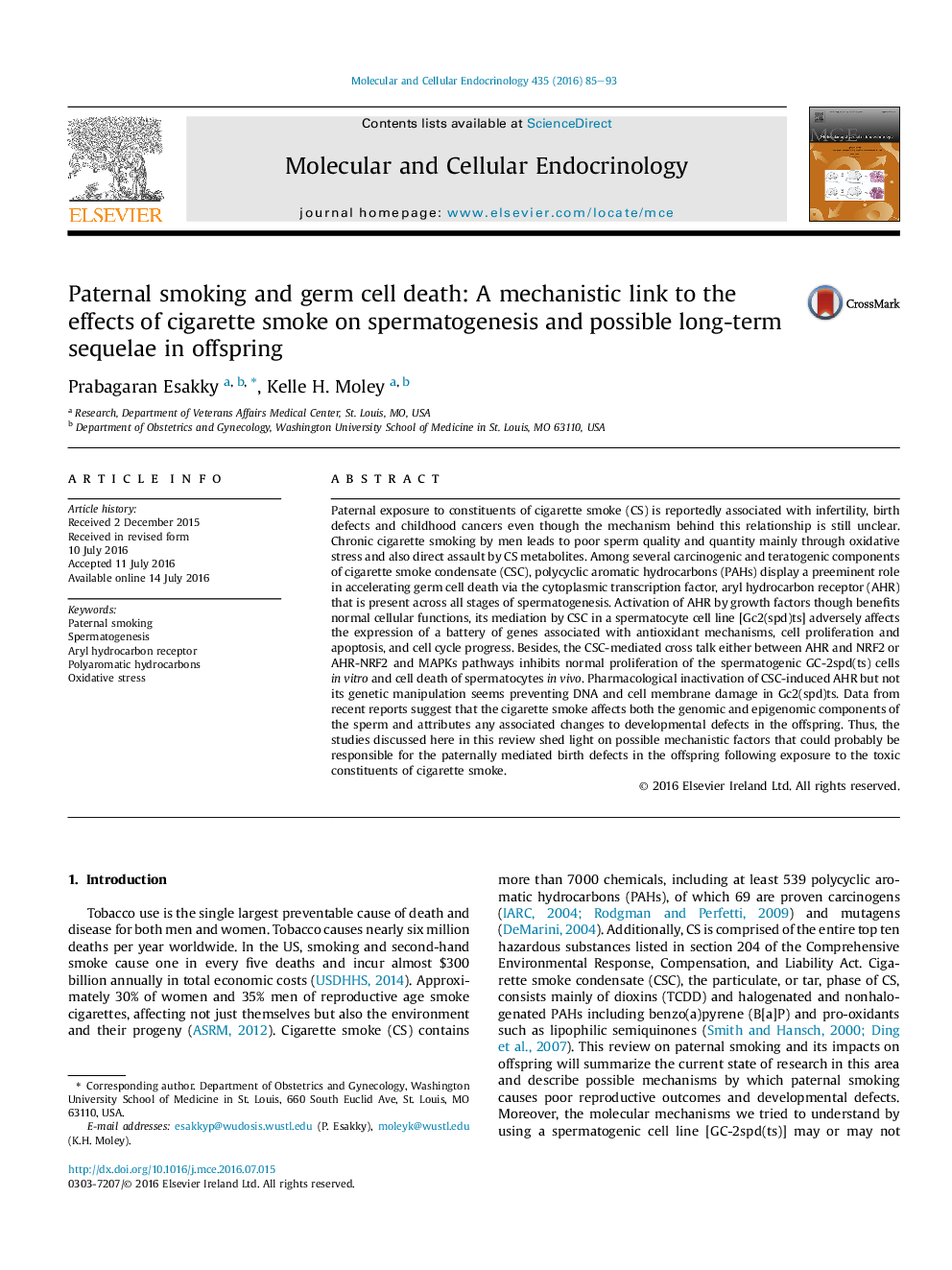| Article ID | Journal | Published Year | Pages | File Type |
|---|---|---|---|---|
| 2195487 | Molecular and Cellular Endocrinology | 2016 | 9 Pages |
•Paternal smoking is both directly and indirectly associated with poor sperm quality and quantity.•Constituents of cigarette smoke appear to block spermatogenesis and cause testicular atrophy in animal models.•Cigarette smoke condensate (CSC) is mutagenic, carcinogenic, and teratogenic.•Polycyclic aromatic hydrocarbons (PAHs) of CSC act as germ cell toxicants via AHR and oxidative stress.•Paternal smoking may mediate epigenetic changes in the offspring through spermatogonial stem cells.
Paternal exposure to constituents of cigarette smoke (CS) is reportedly associated with infertility, birth defects and childhood cancers even though the mechanism behind this relationship is still unclear. Chronic cigarette smoking by men leads to poor sperm quality and quantity mainly through oxidative stress and also direct assault by CS metabolites. Among several carcinogenic and teratogenic components of cigarette smoke condensate (CSC), polycyclic aromatic hydrocarbons (PAHs) display a preeminent role in accelerating germ cell death via the cytoplasmic transcription factor, aryl hydrocarbon receptor (AHR) that is present across all stages of spermatogenesis. Activation of AHR by growth factors though benefits normal cellular functions, its mediation by CSC in a spermatocyte cell line [Gc2(spd)ts] adversely affects the expression of a battery of genes associated with antioxidant mechanisms, cell proliferation and apoptosis, and cell cycle progress. Besides, the CSC-mediated cross talk either between AHR and NRF2 or AHR-NRF2 and MAPKs pathways inhibits normal proliferation of the spermatogenic GC-2spd(ts) cells in vitro and cell death of spermatocytes in vivo. Pharmacological inactivation of CSC-induced AHR but not its genetic manipulation seems preventing DNA and cell membrane damage in Gc2(spd)ts. Data from recent reports suggest that the cigarette smoke affects both the genomic and epigenomic components of the sperm and attributes any associated changes to developmental defects in the offspring. Thus, the studies discussed here in this review shed light on possible mechanistic factors that could probably be responsible for the paternally mediated birth defects in the offspring following exposure to the toxic constituents of cigarette smoke.
